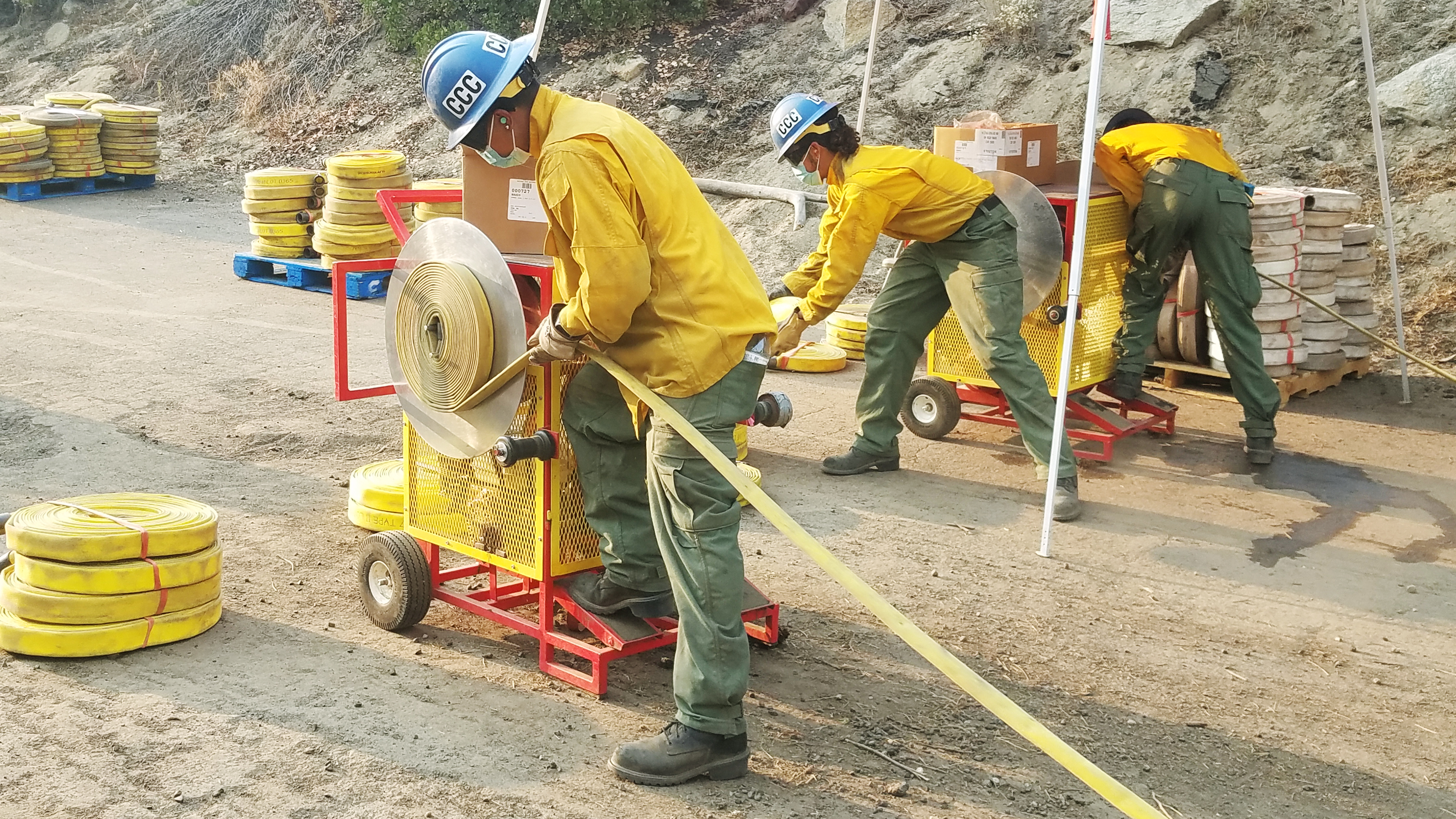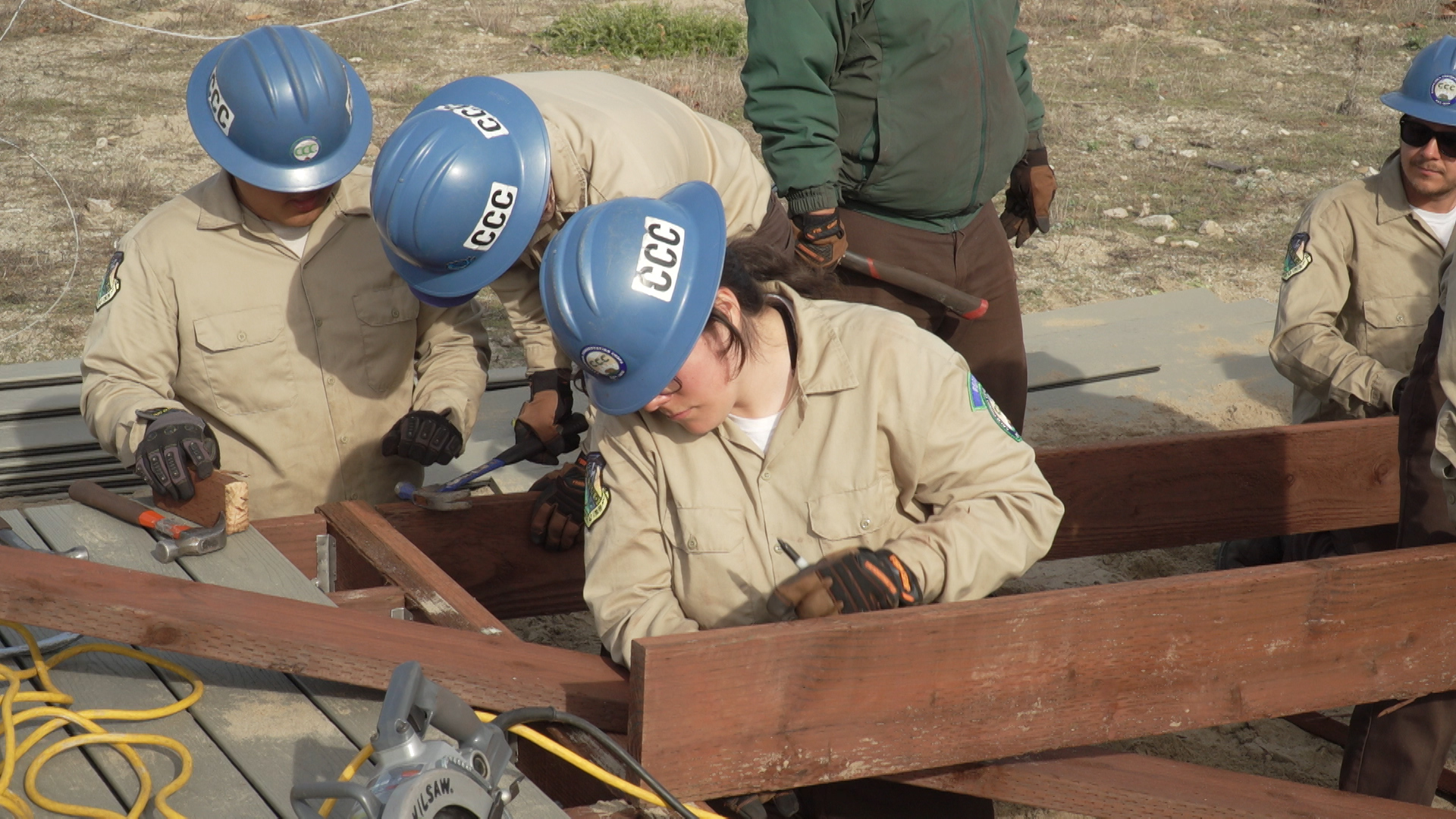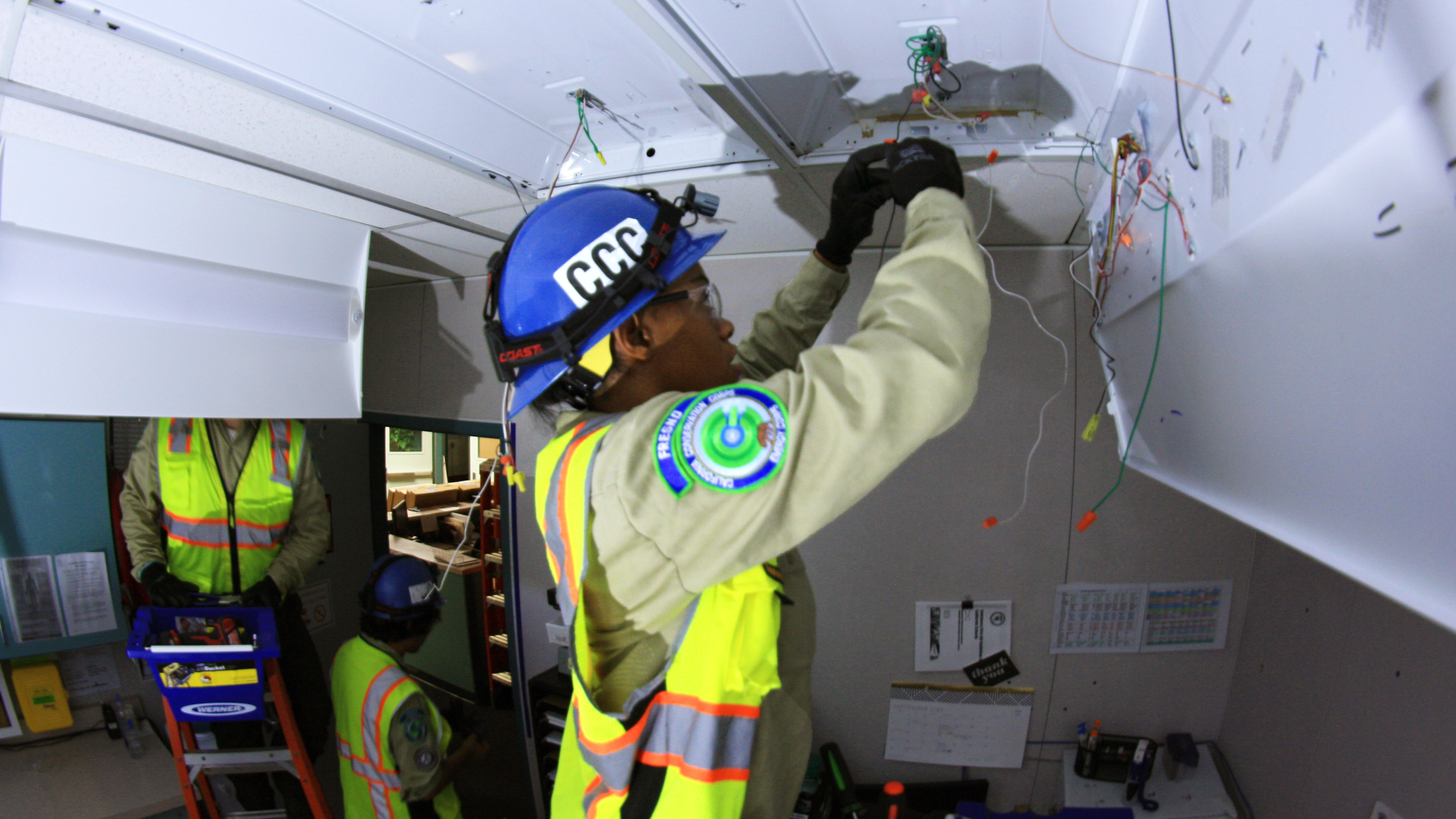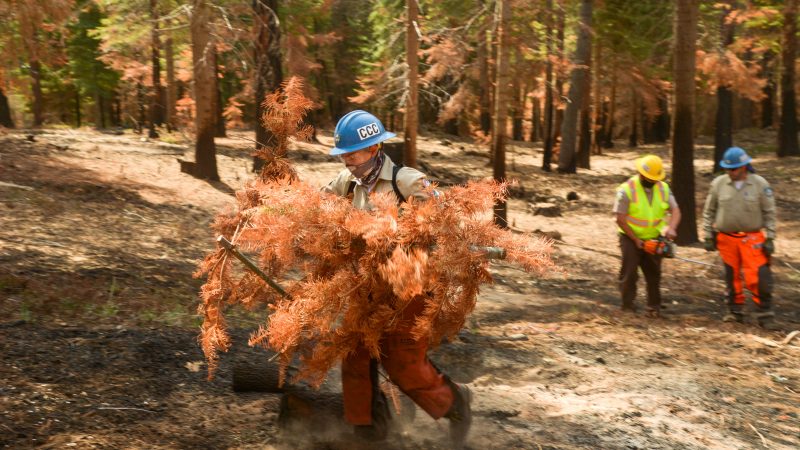Fresno Center
The CCC Fresno Center offers Corpsmembers the opportunity to build skills aimed at improving and enhancing the San Joaquin Valley region’s environment. The center offers training in four distinct project areas, wildland firefighting, forestry, energy, and natural resources.
The center is located in the heart of Fresno, not far from the Fresno-Yosemite International Airport. As many as 65 Corpsmembers work on projects in and around Fresno, including fuel reduction to create fire breaks in the Sierra Nevada mountains, planting trees along rivers in the Central Valley and responding to emergency requests.
All Corpsmembers are able to finish their high school diploma, earn scholarships for college or vocational school, and gain skills to transform their lives.
2536 North Grove Industrial Drive
Fresno, CA 93727
559-458-0914
Life at the Fresno Center

Fresno Corpsmembers use hose rolling machines to roll used fire hose at the Creek Fire base camp. The rolled hose is then shipped to a Forest Service facility for inspection and re-deployment.
The Fresno Center is a non-residential location. Corpsmembers commute to the center each day for work.
Crews typically work four 10-hour workdays, Monday through Thursday. Occasionally, crews may “spike” at project sites. Spikes are where Corpsmembers camp near their project sites in rural locations where a daily commute is not possible. Spikes typically last eight days, from Wednesday to Wednesday. Corpsmembers in the Energy Corps may work evening shifts to complete energy projects at government and non-profits facilities during off-hours to lessen the impact of the work.
Corpsmembers can participate in the Corpsmember Advisory Board (CAB). The CAB is responsible for operating a Corpsmember snack shack at the facility, the recycling program, and selecting weekend volunteer events. Corpsmembers regularly participate in volunteer events throughout the greater Fresno region. Volunteering is a hallmark of the CCC and is required to earn the CCC Brad Duncan Scholarship.
Projects

Fresno Corpsmember Mariah Byers measures a support beam as part of a boardwalk construction project at San Buenaventura State Beach in Ventura County.
The Fresno Center’s crews perform a wide range of projects that includes conservation and restoration of ecosystems, fuel hazard reduction, planting of native shrubs and trees, invasive weed/plant eradication, trail construction and more. Project work typically takes places in Fresno County, but the center also does work in Madera, Tulare, and King’s counties.
Wildland Firefighting: The CCC Fresno Center operates a wildland firefighting hand crew in partnership with CAL FIRE. Corpsmembers receive training and hands-on experience working with CAL FIRE captains responding to wildfires year-round locally and across the state. The center is collaborating with the CAL FIRE Fresno-Kings (FKU) unit to operate the crew, which is known as Mid Valley 1. Wildland hand crews help build fire line with hand tools and conduct mop-up work.
Forestry Corps: The Fresno Center operates a CCC Forestry Corps crew committed to improving California’s forest health. Corpsmembers are trained to remove and reduce overgrown and dead vegetation posing a potential fire risk. The Forestry Corps may also assist in tree planting, tree felling, and other arborist work and training. Partnerships are developed and maintained with sponsoring agencies such as CAL FIRE, U.S. Forest Service, California State Parks, Department of Water Resources, Caltrans, and local non-profit land conservancies and councils.
Energy Corps Corpsmembers conduct energy surveys, lighting retrofits, solar installation, EV charging station installation and more throughout the Central Valley and across Northern California. Training opportunities are regularly provided at the CCC Sacramento Energy Center, which features a state-of-the-art energy lab for hands-on training and experience.
Another duty of the CCC is to respond to emergencies such as natural disaster relief, fires, and floods. Fresno Corpsmembers regularly provide support to wildland fire base camps from April to October. Assignments can be requested at any time and Corpsmembers may be required to work up to 21 straight days, working 16-hour days at assignments.
Education and Training

A Fresno Energy Corpsmember works to retrofit an overhead light inside the administration building of a school in Rosamond, CA.
All Corpsmembers at the Fresno Center complete Corpsmember Orientation, Motivation, Education, and Training (COMET) and Core training courses. Corpsmembers without a high school diploma must work to finish their diploma while enrolled in the CCC.Other specialized trainings and certification opportunities include:
- First Aid & CPR
- Automated External Defibrillator (AED) Certificate
- Chain Saw Training
- Chipper Safety & Training
- Hazardous Waste Operations and Emergency Response (HAZWOPER) 40-Hour Training
- Building Envelope
- Cal-OSHA 10-Hour Safety Training for Construction
- Electrical Concepts
- Energy Audits
- Energy Efficiency Basics & Data Collection for Energy Surveys
- Energy Efficiency Fundamentals
- Introduction to Wiring and Lighting Retrofits
- Construction & Trades
- Leave No Trace
- Power Tools Safety and Operation
- Safety Stand Down
- ServSafe Food Protection Certification
- Small Engine Repair
- Ladder Safety
- LED Technology Hands-on Training
- Lighting Commissioning
- Lighting Control Installation
- Lighting I: Lighting Your Way
- Lockout-Tagout
- Maintenance Best Practice for Energy Efficient Facilities
- Scissor (Aerial) Lift


